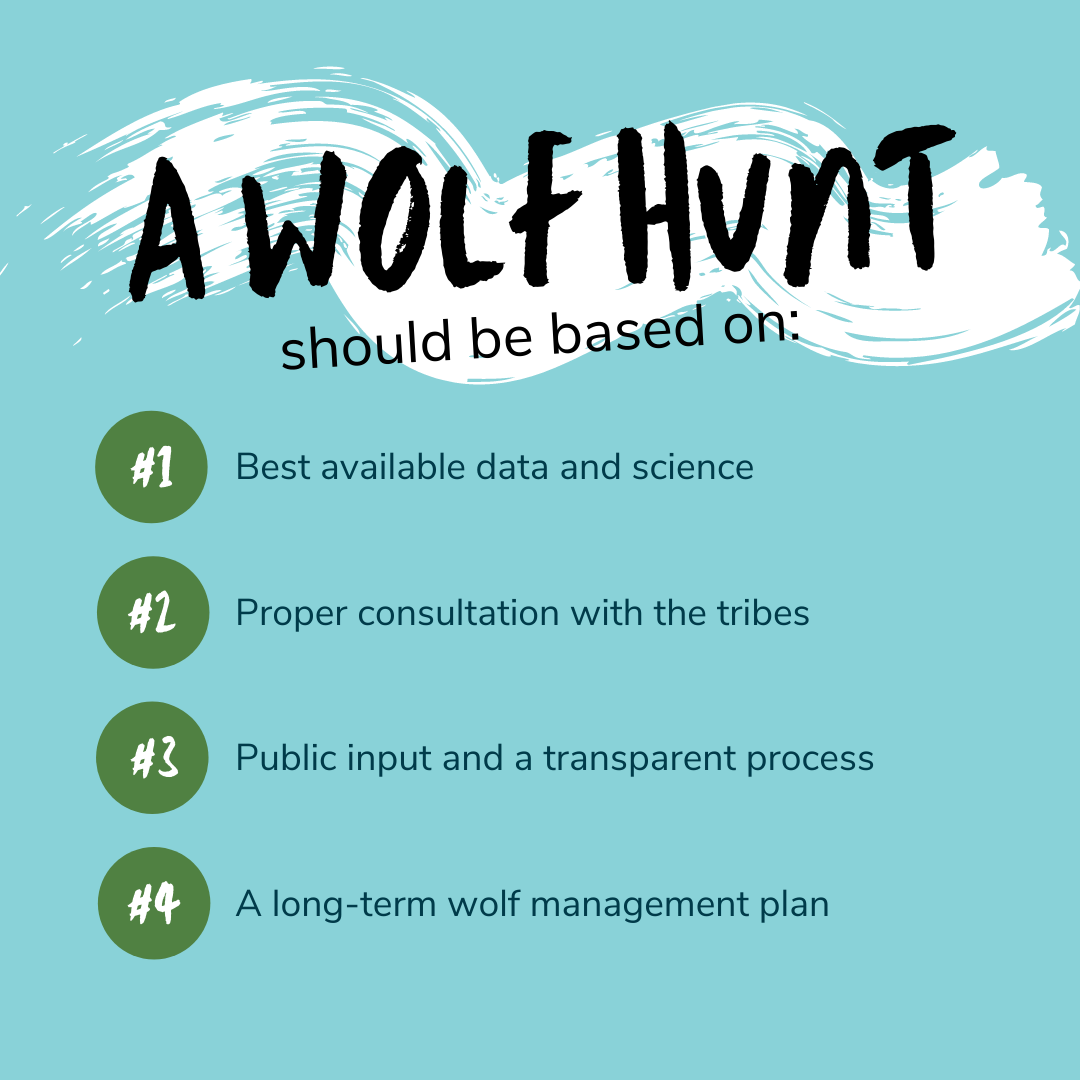 The Wisconsin Natural Resources Board will be holding a meeting on Friday of this week to discuss a potential wolf hunting and trapping season–a hunt could be allowed almost immediately. Despite the late notice, you must sign up to testify or submit public comments by 8 AM THURSDAY, January 21. The meeting will take place on Friday, January 22 at 8:30 AM.
The Wisconsin Natural Resources Board will be holding a meeting on Friday of this week to discuss a potential wolf hunting and trapping season–a hunt could be allowed almost immediately. Despite the late notice, you must sign up to testify or submit public comments by 8 AM THURSDAY, January 21. The meeting will take place on Friday, January 22 at 8:30 AM.
There should be no wolf hunt established until a proper, science-based management plan in place prior to any wolf hunt. The plan should include the latest science, public input, a broad stakeholder group, and proper consultation of the tribes. Rushing a wolf hunt simply prioritizes politics over science, our forests, and a healthy ecosystem.
Please submit comments or sign up to speak.
- To sign up to speak at the hearing, contact Laurie Ross at 608-267-7420 or by email at laurie.ross@wisconsin.gov and let her know that you would like to testify at the hearing on Friday
- Click here to submit public comments by Thursday at 8:00 AM.
Here are some important talking points that you can use in your statement or written comments:
-
Wolves and apex predators are essential to the ecosystem, especially by helping to keep the deer population inline. The ratio of predator to prey populations is a critical balance point in understanding forest landscape health.
-
Wolves act as the immune system of the forest, by changing the forage behavior of the deer to the benefit of the forest structure. Wolves cull sick animals, including deer with chronic wasting disease, serving all of us.
-
A “wolf harvest” starting in January or February would be premature. As eager as some are to launch the next wolf hunt, they can only do so in keeping with the best science and with the support of Wisconsin’s public.
-
Any hunt should not begin until the Department of Natural Resources (DNR) is able to create a science-based wildlife management plan.
-
In order to do so, the DNR needs time to create a process with public input opportunities (with plenty of notice) and bring together a broad stakeholder group, with the full consultation of Wisconsin’s tribes (as required by law).
-
We can look to other states, including Minnesota, for a process that includes a broad range of stakeholders.
Please contact Elizabeth Ward at elizabeth.ward@sierraclub.org with any questions or if you'd like to get more involved with our work to ensure science-based wildlife-management. (You can learn more at our upcoming Virtual Volunteer Fair as well.)